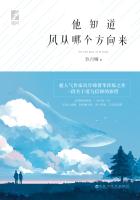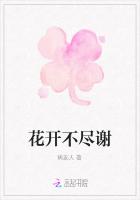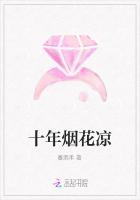Utility, Humility, Honor, and Service
I want to start this Class Day Address by congratulating all who are graduating this weekend for having made it to this point-more or less in one piece-and by thanking the Class of 2006 for the invitation to speak. I was immensely touched by your gesture, and promise to do my best to say something profound-or if not profound, at least amusing. I also want to welcome the parents, families and friends of today‘s graduates and graduating seniors. This is, indeed, a very special day, one that never fails to move and toinspire even those of us privileged to experience it more than once.
In trying to decide how to frame my remarks today, I did something I don’t usually do. I let my mind wander. This wasn‘t easy for me, as I’m a goal-oriented, no nonsense, get to the point kind of person. But I held out this time, and-as I hoped it would-he substance of what I want to say to you today came into focus. I want to take the next 25 minutes or so to talk about four deceptively simple concepts: utility, humility, honor, and service. Why these four out of the thousands of possibilities: To be honest, because I wish that someone had addressed them when I was sitting there, some 34 years ago.
So, with your indulgence, let us begin. The first of the themes I want to touch on is the concept of utility.
Jane and Leland Stanford drew particular attention to the notion of“usefulness”or“utility” in imparting life to this institution. It has been a hallmark of a Stanford education ever since. But why, among all the virtues, would they single out“usefulness”as something worthy of cultivation and exaltation:
The Stanfords spent a good deal of time meeting with prominent scholars, including university presidents, in the first several years after the death of Leland Stanford,as they sought to honor the memory of their only child through some kind of an educational statement. In the end, as we know, that statement became this university.
The Stanfords‘ preoccupation with utility even found its way into the Founding Grant where they declared that the primary object of a Stanford education should be“to qualify students for personal success, and direct usefulness in life.”The explicit emphasis on utility suggests, at least to me, that Jane and Leland Stanford were under whelmed by what they heard- and what they saw-in their extended tour of America’s best colleges and universities.
From what I have learned about higher education in the United States in the last quarter of the 19th century, they were right to be concerned. As one observer of the Yale undergraduate scene wrote at the time, the typical student could be characterized as“a careless man-boy who is chiefly anxious to‘have a good time’ and who shirks his work and deceives his instructors in every possible way.”
Lest students be seen as the only weak links in this flawed educational chain, faculty-even faculty at such august institutions as that place along the Charles River-were routinely excoriated for their sub-standard performance. One report, produced by members of the Harvard College Committee on Instruction, found that“certain lecturers failed to interest, some were inaudible, and some wasted time dictating data or having it copied from the blackboard.”
Although he died a very rich man, Leland Stanford, Sr. was born into a family of modest means. The same was true for Mrs. Stanford. Throughout their lives, they cherished the sturdy middle class values with which they had been raised, and were eager to see them perpetuated by the institution that would soon bear their name.
Importantly, they did not set out to create an elite institution modeled on the Ivy League colleges that had both attracted and repelled them. They sought, rather, to create something different, something new: an institution of higher learning decidedly more accessible, more inclusive, and more“practical” than was typical for the time.
Thus, when Stanford opened its doors for the first time in the fall of 1891, women as well as men were welcomed to its classrooms and enrolled students paid no tuition. That inaugural class also included an African American, as well as several students of Asian descent. And from the beginning, Stanford, unlike many of its peer institutions, embraced the opportunity to train peoplein the professions-in engineering, of course, but also in law and later in business, in medicine, and in education. In this, as in so many other ways, Stanford was-and remains-different from most of its sister schools. Clayton Brown, a GSB student who spoke at this year‘s Founders Day Celebration, characterized Stanford-correctly in my view-as“the first American university”with its emphases on practicality as well as erudition, on turning outward as well as inward, and on running risks in pursuit of excellence.
On Opening Day, October 1, 1891, Stanford President David Starr Jordan reminded members of that first class that they labored under no hallowed traditions; that this new world was theirs to make.“Our university,”he declared, has no history to fall back upon; no memories of great teachers haunt its corridors; in none of its rooms appear the traces which show where a great man has ever lived or worked. No tender associations cling, ivy like, to its fresh new walls...Traditions and associations it is ours to make.
One hundred fifteen years later, traditions we now have-in abundance. Some, such as the Wacky Walk, are silly, if endearing. Others, such as honoring the founders every year, are solemn and moving. The one that I most cherish, though, because it says so much about us as a community, is the one that all but compels us to make practical use of the marvelous education to which you now lay claim.
My advice to you is to embrace this tradition; let it guide you in everything you do.
Whether you know it or not, it’s in your blood; it is now a vital part of who you are.















